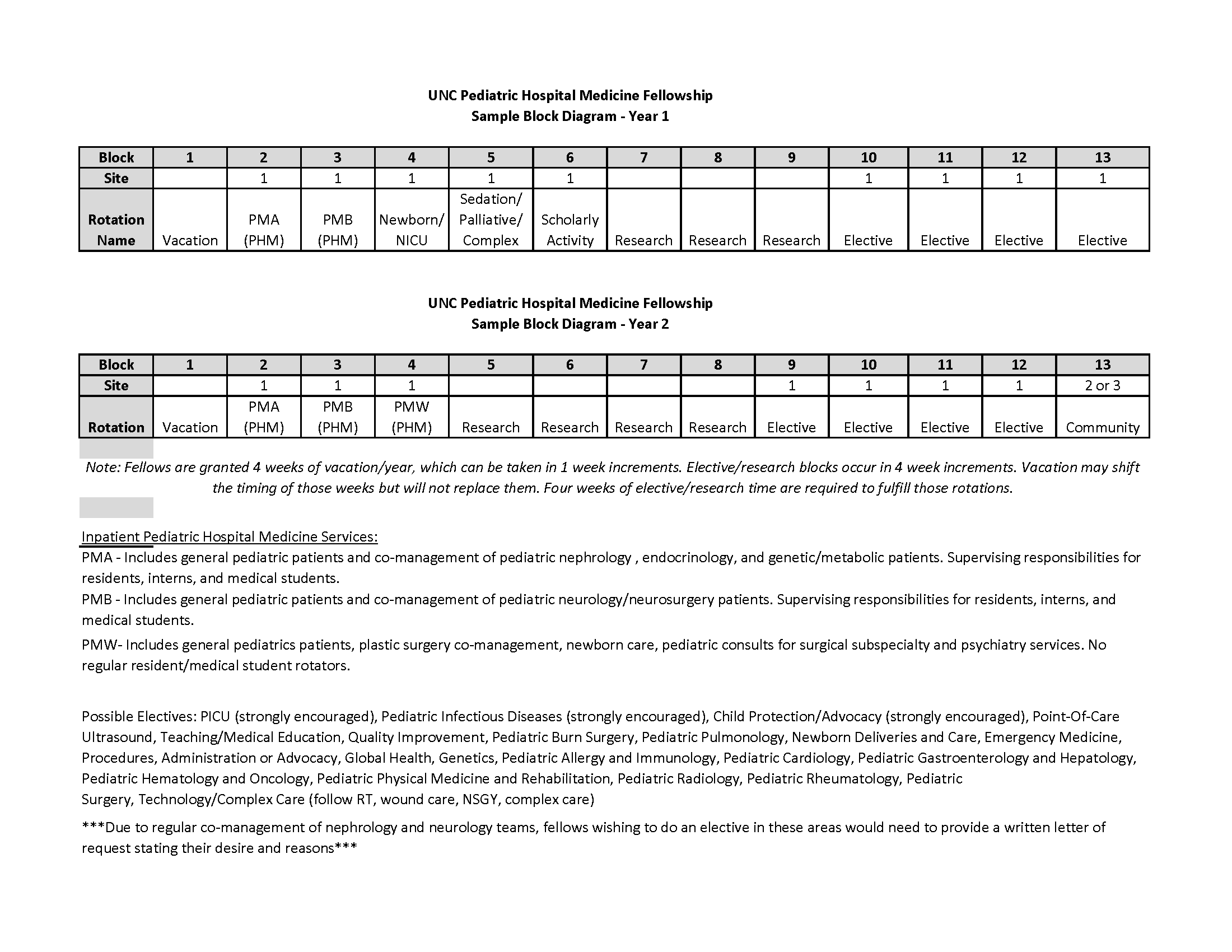Curriculum
During the first year, fellows will work directly with attending faculty on our general pediatric teaching services (which include nephrology, neurology, and surgical co-management and complex care patients) with the primary goals of becoming strong clinical leaders of multidisciplinary teams and improving bedside teaching skills in the context of family-centered rounds. In addition, fellows will work with our supportive care, complex care, and sedation teams to further broaden their skills. In order to provide an adequate foundation for work in medical education, quality improvement/patient safety, research, and administrative work, the fellow will undergo a scholarly introduction rotation (second rotation of their first year) that provides additional education.
In the second year, fellows focus on developing further independence on the general pediatric teams and select additional clinical experiences tailored to their career interests. Experiences in community hospital medicine at Novant New Hanover and on an attending-only hospitalist service are included in the second year. Electives time with our pediatric ICU, infectious diseases and child maltreatment teams are strongly recommended. In the final year, fellows spend the majority of their time on academic experiences tailored to their interests. Each year includes an even division between required inpatient units, individualized curriculum, and research, as well as 4 weeks of vacation.
A multitude of non-clinical professional development curriculum options are available: fellows participate in an institutional fellowship curriculum, engage in dedicated divisional activities geared to fellows and junior faculty, and attend 1-2 national conferences yearly.
Our fellows are exposed to all academic facets of Pediatric Hospital Medicine – including clinical research, quality improvement science, patient safety, medical operations, and medical education. With the guidance of a mentorship team and Scientific Oversight Committee, each fellow will choose an area for their primary academic focus in which to acquire additional advanced skills.
- Leadership training and mentorship from PHM faculty and senior administrators
- One-on-one shadowing experiences with high-level administrators (e.g. administrator on duty, chief operations officer, chief nursing officer, senior vice-presidents
- To contextualize hospital operations and view different perspectives on hospital challenges
- Guidelines and standardization committees to establish best practices and standardization across the UNC system
- Leading sessions at institutional inter-professional education conferences (M&Ms, Grand Rounds, etc) with the goal of broader dissemination in national meetings
- Institute for Healthcare Improvement Open School QI training modules
- QI projects, working closely with leaders from nursing and other ancillary staff
- Fellows with specific interest in QI will have additional dedicated mentorship from faculty involved in and with leadership positions in quality and patient safety
- Participation in existing core fellowship curricula (fellows’ college)
- Topics such as professionalism, cultural humility, innovative approaches to teaching, teamwork and training, and academic promotion
- Diversity and Inclusion Curriculum including LGBTQ+ awareness and Ally training workshop, Implicit Bias workshop, and monthly fellow-led discussions of various DEI topics with mentorship from the UNC Pediatrics DEI subcommittee
- Opportunities at both campuses to teach nursing students, medical students, residents of all specialties (anesthesia, medicine-pediatrics, pediatrics)
- Dedicated mentorship from faculty with leadership positions in medical education
